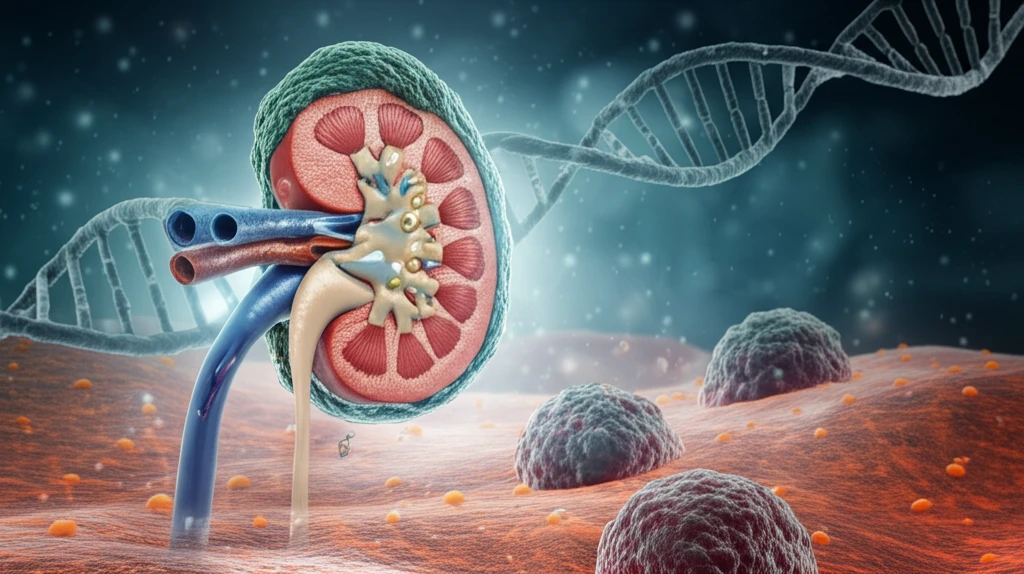
Kidney Health Breakthrough: Silencing TCF8 Gene Prevents Damage from High Glucose and Angiotensin II
"New research reveals how targeting the TCF8 gene could protect podocytes, specialized kidney cells, from the harmful effects of diabetes and hypertension, paving the way for novel therapies to prevent kidney disease."
Our kidneys, the unsung heroes of bodily filtration, work tirelessly to cleanse our blood and maintain overall health. Within these vital organs reside podocytes, specialized cells attached to the glomeruli, which are essential for filtering waste. When conditions like diabetes or hypertension run rampant, these delicate podocytes can suffer, leading to kidney disease and potential failure. Understanding how to protect these cells is a major focus of medical research.
Epithelial-mesenchymal transition (EMT) is a cellular process often associated with embryonic development and wound healing. However, when EMT occurs inappropriately, it can contribute to various diseases, including kidney fibrosis. In the context of kidney health, EMT can cause podocytes to lose their specialized function, leading to protein leakage into the urine and progressive kidney damage. Imagine your kidney's filters slowly clogging and losing their effectiveness – that's the impact of EMT on podocytes.
Now, a groundbreaking study sheds light on a potential new strategy for preserving kidney health. Researchers have discovered that targeting a specific gene, TCF8, can prevent the harmful effects of high glucose levels and angiotensin II, two key culprits in diabetic kidney disease and hypertension. By 'silencing' this gene, scientists were able to protect podocytes from undergoing EMT, offering a promising avenue for future therapies.
TCF8: The Gene Holding the Key to Podocyte Protection

The study, conducted by researchers at Shandong University in China, investigated the role of TCF8 in the progression of kidney damage. They focused on how high glucose concentrations, mimicking diabetes, and angiotensin II, a hormone that raises blood pressure, affect podocytes. The team found that both high glucose and angiotensin II significantly increased the expression of TCF8 in podocytes, triggering EMT and cellular damage. Think of TCF8 as a switch that, when flipped, causes podocytes to lose their specialized function and contribute to kidney disease.
- Reduced EMT: Silencing TCF8 reversed the transition of podocytes from an epithelial to a mesenchymal state.
- Preserved Morphology: The cells maintained their normal shape and structure, essential for proper filtration.
- Inhibited Migration and Invasion: TCF8 knockdown prevented the abnormal movement and spread of podocytes, which contributes to kidney damage.
- Reversed Biomarker Expression: The expression of key EMT markers was normalized, indicating a return to healthy cellular function.
Hope for the Future: Targeting TCF8 for Kidney Protection
While this research is still in its early stages, the findings offer a promising new direction for treating kidney disease. By targeting TCF8, scientists may be able to develop therapies that specifically protect podocytes from the damaging effects of diabetes and hypertension. This could translate into new treatments that prevent or slow the progression of kidney failure, improving the lives of millions at risk. The journey to understanding and conquering kidney disease is ongoing, but this new breakthrough provides a beacon of hope for a healthier future.
